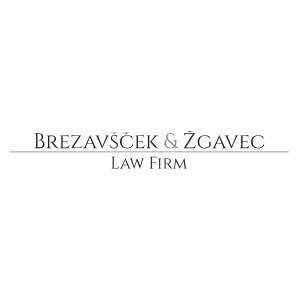Best General Litigation Lawyers in Ljubljana
Share your needs with us, get contacted by law firms.
Free. Takes 2 min.
List of the best lawyers in Ljubljana, Slovenia
About Litigation Law in Ljubljana, Slovenia
Litigation in Ljubljana, Slovenia, follows the civil law system, characteristic of many European countries. The judicial process includes various stages, such as pleadings, discovery, and trial, aimed at resolving disputes between parties. The Slovenian legal system is known for its efficiency and adherence to European Union standards. Litigation in Ljubljana can involve commercial disputes, contractual disagreements, tort claims, and other civil matters.
Why You May Need a Lawyer
There are numerous situations in which you may require legal assistance for litigation in Ljubljana. These include contract disputes, personal injury claims, tenant-landlord disputes, employment disagreements, and the enforcement of rights under Slovenian law. A lawyer can provide expert guidance in navigating the complex legal procedures and represent your interests effectively in court.
Local Laws Overview
The legal framework governing litigation in Ljubljana is primarily set by the Slovenian Code of Obligations and the Civil Procedure Act. Key aspects include the detailed procedure for filing a lawsuit, rules of evidence, and the right to appeal. The legal system emphasizes court mediation to resolve disputes amicably before proceeding to a trial. Understanding these local laws is crucial for effective litigation management.
Frequently Asked Questions
What is the first step in filing a lawsuit in Ljubljana?
The first step is usually consulting with a lawyer to assess the merits of your case and prepare a legal complaint to be filed at the appropriate court.
How long does the litigation process typically take?
The duration can vary greatly depending on the complexity of the case, but litigation in Slovenia often takes several months to a few years to reach a conclusion.
Can the decision of a Slovenian court be appealed?
Yes, decisions can generally be appealed to a higher court, subject to specific procedural rules and grounds for appeal.
What is court mediation, and is it mandatory?
Court mediation is an effort to resolve disputes amicably before the trial stage, and while not mandatory, it is often encouraged by the courts.
What are the costs involved in litigation?
The costs can include court fees, attorney fees, and other litigation expenses, varying based on the case's complexity and duration.
Do I need to be present in court during the proceedings?
Your presence may be required for certain hearings; however, your lawyer can represent you in most procedural matters.
Is it possible to settle a dispute out of court?
Yes, many disputes are resolved through negotiation or mediation before reaching the trial stage.
How do courts in Ljubljana handle evidence?
The Slovenian courts have stringent rules for evidence presentation, which must be adhered to by both parties during litigation.
What should I do if I receive a legal summons?
It is crucial to consult a lawyer immediately to understand the nature of the lawsuit and prepare a defense.
Can foreigners initiate litigation in Ljubljana?
Yes, foreigners have the right to litigation in Slovenian courts, though it is advisable to engage legal counsel familiar with local laws.
Additional Resources
If you require legal assistance, several resources can be of help: the Slovenian Bar Association, Ljubljana District Court, legal aid clinics, and non-governmental organizations like the Consumer Protection Association of Slovenia.
Next Steps
If you need legal assistance in litigation, the first step is to consult with a qualified attorney who specializes in your specific area of law. Prepare all relevant documents and evidence, and schedule a consultation to discuss your case in detail. Engaging with a lawyer early on can improve your chances of a favorable outcome and streamline the litigation process.
Lawzana helps you find the best lawyers and law firms in Ljubljana through a curated and pre-screened list of qualified legal professionals. Our platform offers rankings and detailed profiles of attorneys and law firms, allowing you to compare based on practice areas, including General Litigation, experience, and client feedback.
Each profile includes a description of the firm's areas of practice, client reviews, team members and partners, year of establishment, spoken languages, office locations, contact information, social media presence, and any published articles or resources. Most firms on our platform speak English and are experienced in both local and international legal matters.
Get a quote from top-rated law firms in Ljubljana, Slovenia — quickly, securely, and without unnecessary hassle.
Disclaimer:
The information provided on this page is for general informational purposes only and does not constitute legal advice. While we strive to ensure the accuracy and relevance of the content, legal information may change over time, and interpretations of the law can vary. You should always consult with a qualified legal professional for advice specific to your situation.
We disclaim all liability for actions taken or not taken based on the content of this page. If you believe any information is incorrect or outdated, please contact us, and we will review and update it where appropriate.












